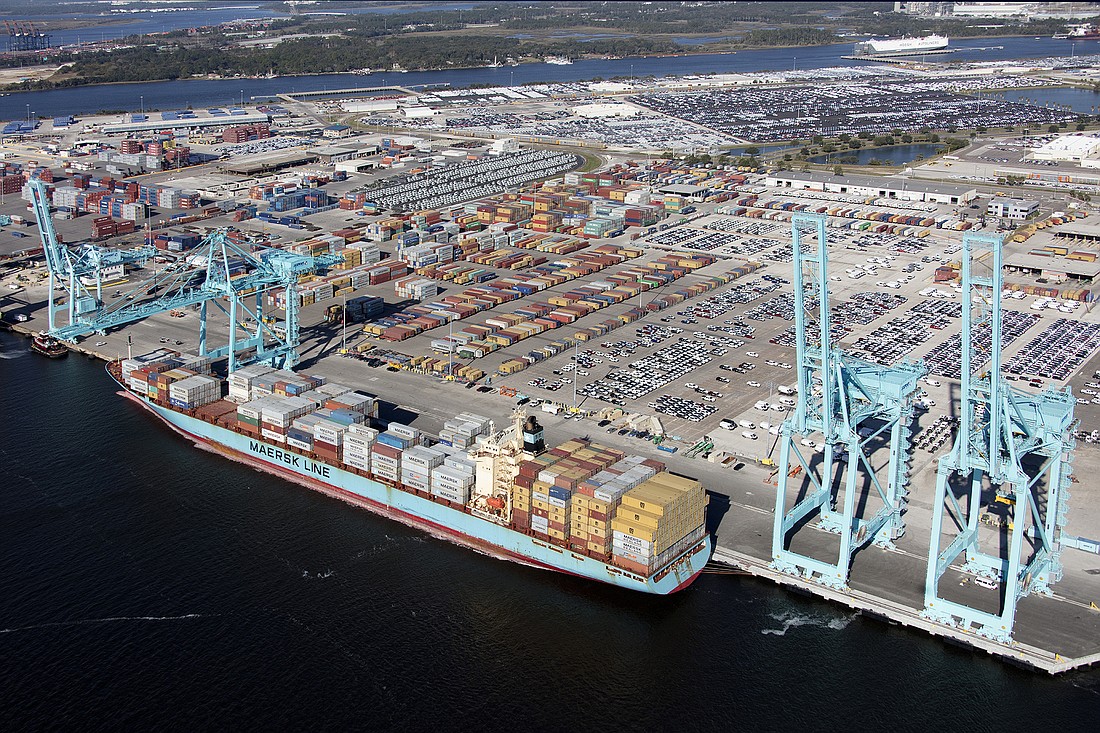
“Economists love to predict recessions,” admits Kevin Thorpe, chief economist and global head of research for Cushman & Wakefield.
“The running joke is we were successful predicting nine of the last four,” he said Thursday at a NAIOP Commercial Real Estate Development Association Northeast Florida Chapter luncheon.
Actually, most economists are “pretty optimistic about this year,” Thorpe said at the event at The River Club Downtown.
He said 90 percent of members of the National Association for Business Economics don’t expect a recession in 2019, with the average forecast calling for 2.1 percent growth in U.S. gross domestic product.
Concerns about slowdowns in China and Europe may be clouding the U.S. outlook, but Thorpe pointed out those economies are still growing, just at a slower rate.
“Despite the global slowdown, the expansion will continue and not be ending anytime soon,” he said.
“I would argue the U.S. economy is more likely to shoot itself in the foot than to allow the global economy to do that to us.”
Speaking to a group of commercial real estate professionals, Thorpe said the metrics for the Jacksonville market are strong, particularly for industrial properties.
“Industrial is about as close to a can't miss as there is in the commercial real estate industry,” he said.
Jacksonville’s industrial vacancy rate is at 2.3 percent, well below its historical average vacancy of 8.1 percent, he said. That’s the third-lowest vacancy rate among the top 50 markets in the U.S.
Thorpe thinks business from Jacksonville’s port and rail connections will continue to make Northeast Florida a strong industrial real estate market.
“You're kind of at the heart of the intermodal network,” he said.
The vacancy rate for office buildings in the Jacksonville market was higher than for industrial properties at 12.9 percent in the fourth quarter, Thorpe said. But that’s still below the 10-year average of 18.3 percent.
Thorpe told audience members they would have a better handle on the local market than he does, but “from a macro view, it looks like this market can use some new office buildings.”
Jacksonville’s growth is benefiting from a continued migration of new residents, he said.
The net migration in the Jacksonville area was an addition of 69,000 residents from 2016 to 2018, and he projects that pace to continue with a net addition of 66,000 people from 2019 through 2021.
Thorpe projects jobs in the Jacksonville market will grow by 13,900 this year, which would rank the area 35th of the 50 largest U.S. metropolitan areas.
However, the area’s unemployment rate, at 3.4 percent last month, remains low.
Thorpe said the low unemployment rate could result in labor shortages.
“This is going to create some challenges,” he said, including difficulty in retaining workers and filling open positions. It also will prompt businesses to increase wages, which will hurt their profitability.
On the other hand, higher wages will increase consumer spending power, which will help the overall economy.
“The U.S. is still a 70 percent consumer spending-based economy,” Thorpe said.
While most economists do not expect a recession this year, 30 percent of NABE economists think it could happen in 2020 and 50 percent expect a downturn by 2021. But Thorpe said any recession will not be as severe as the 2007-09 downturn.
“The U.S. financial system is as solid as I've ever seen,” he said.
As far as Thorpe is concerned, the economy is not slowing too much but not overheating. It could be described as just right.
“It really puts the Goldilocks scenario back in play,” he said.